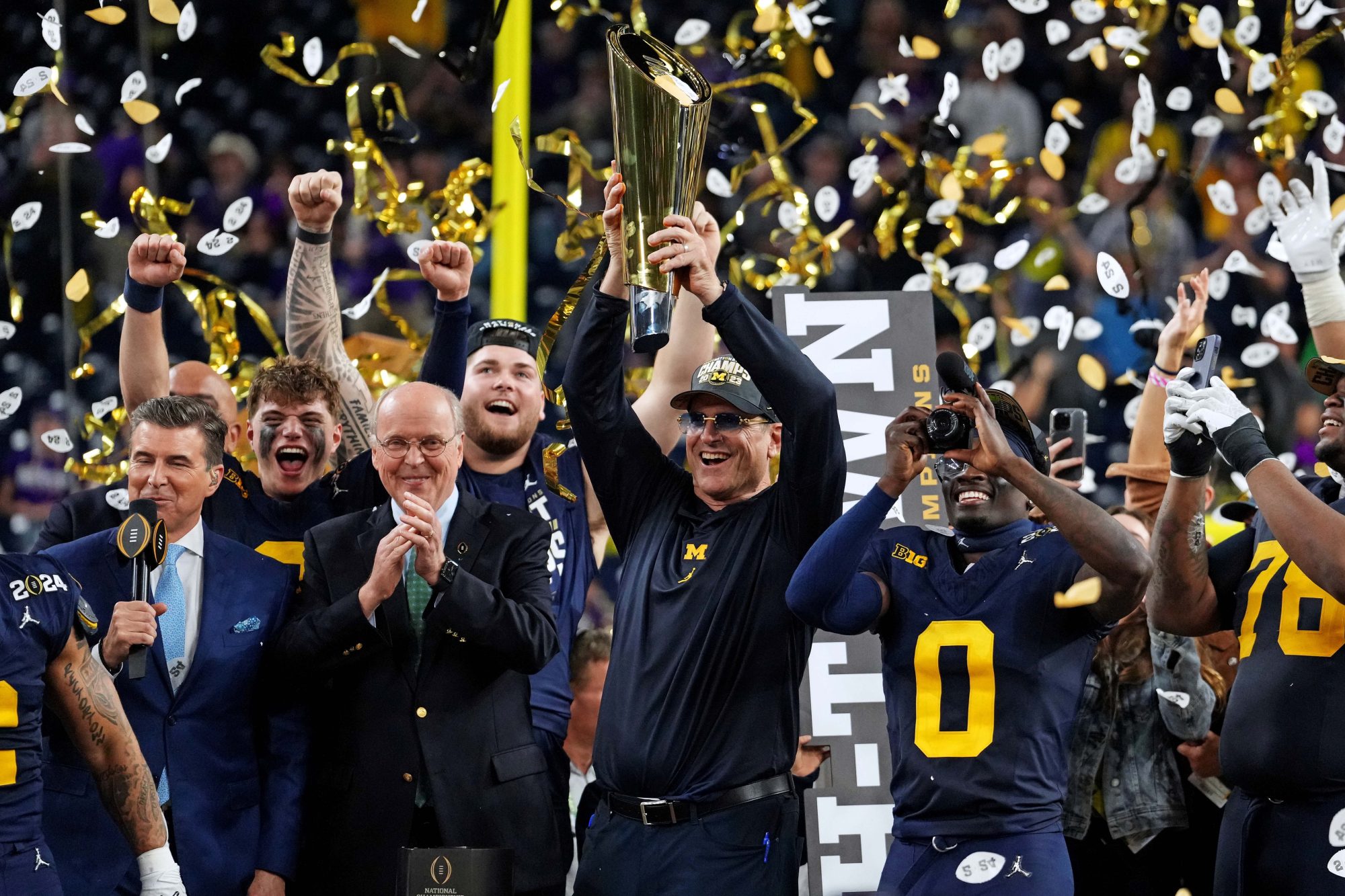On Monday night in Houston, Michigan’s 34-13 triumph over Washington brought the four-team College Football Playoff era to a close.
When the four-team structure began, the CFP didn’t have a staff or an office, let alone a selection committee, according to executive director Bill Hancock, who has presided over the Playoff since its inception in 2014. “We didn’t own a copy machine,” he tells Front Office Sports with a laugh.
The four-team model was an expansion of the postseason that gave classic bowl games new meaning. Hancock knew it would be successful—but perhaps not this successful. “It’s been everything we hoped it would be,” he says.
- The CFP’s media contract with ESPN rakes in between $400 million and $500 million per year.
- As a result, schools receive a total of up to $500 million a year.
- The games draw monstrous ratings—even last year’s blowout Georgia win ranked as the 78th most-watched program in all of television.
The four-team system wasn’t without controversy. In many instances, fans decried the lack of parity in allowing just four programs out of more than 100 into any postseason that mattered. That criticism reached a crescendo this year when the CFP’s Selection Committee, made up of independent members, chose to give Alabama the fourth slot instead of undefeated ACC champions Florida State.
The backlash was swift and harsh. Fans sent profanity-laced, threatening emails to committee members, Hancock told reporters on Monday. Both local and national Florida lawmakers attacked the result. FSU, for its part, mentioned the decision as a key reason the school intended to sue to get out of the ACC.
It’s unclear whether a 12-team model will fix the controversy over who’s in and who’s out. It will surely allow for more parity, provide campuses with the opportunity to host games for the first time, and perhaps even give multiple networks a chance to broadcast college football’s crown jewel.
Just one year away, the CFP still has several major details to iron out, but Hancock isn’t concerned. The advent of the BCS championship and the creation of the four-team playoff were “bigger steps,” he says. “Getting people to come together that hadn’t come together before … that was the biggest leap of all.”





![[Subscription Customers Only] Jul 13, 2025; East Rutherford, New Jersey, USA; Chelsea FC midfielder Cole Palmer (10) celebrates winning the final of the 2025 FIFA Club World Cup at MetLife Stadium](https://frontofficesports.com/wp-content/uploads/2026/02/USATSI_26636703-scaled-e1770932227605.jpg?quality=100&w=1024)











